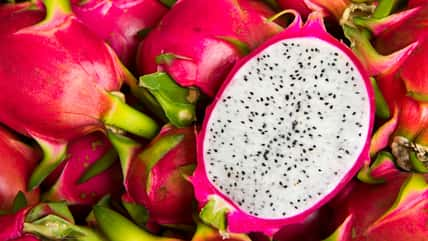If You Want To Host A Sustainable Thanksgiving Without Giving Up The Star Of Your Meal, You Might Want To Buy A Heritage Turkey

By now, it is no secret that the innocent facts we learned about Thanksgiving in grade school could not have been further from the truth.
This has pushed many Americans to rethink their holiday celebrations or even boycott Thanksgiving all together.
Other concerns surrounding Thanksgiving’s ethical implications have also come into question over the last decade.
I mean, an estimated forty-six million turkeys are slaughtered each year for the holiday festivities alone. That’s a lot of sad gobbles.
So, many have moved towards hosting more sustainable holiday dinners. The most obvious way to do this is by cutting out the former star of your meal– turkey– and replacing it with a meat alternative.
Plus, it’s not like there is any shortage of new and creative meat substitutes on the market.
On top of that, Thanksgiving is arguably already the easiest holiday to be a vegetarian or vegan. You can simply skip the turkey and any meat alternatives completely and chow down on dozens of traditional (and ethical) side options– such as potatoes, green beans, yams, salads, squash soup, and corn.
Nonetheless, if you are like most Americans, you might still want to commemorate your Thanksgiving dinner with a beautiful bird.
But, if you also want to respect turkeys in the process, you are in luck– because there are still plenty of ways to shop for your turkey sustainably.

deagreez – stock.adobe.com – illustrative purposes only, not the actual people
Select A Humanely Raised Turkey
Yes, there are countless people who believe that animal agriculture is already inherently inhumane. Despite that, though, most can agree that there are some farming processes that are more dignified than others.
Currently, all domesticated turkeys hail from wild turkeys that are indigenous to North America and South America. A few centuries of domestication, though, created numerous different breeds– many of which are now either extinct or on their way to extinction.
So, whenever you shop at a run-of-the-mill grocery store, you will likely be able to pick from only two breeds– the Broad Breasted White and the Broad Breasted Bronze turkeys.
But while these birds may satisfy the commercial needs of producers, they are no longer able to live, mate, and grow as turkeys were originally meant to.
Instead, you might want to consider purchasing a heritage turkey this year.
First of all, heritage turkeys are only grown to a proportionate size– unlike conventional turkeys, which are bred to be so large that they can no longer mate naturally.
On top of that, heritage turkeys are slaughtered much later than conventional turkeys– twenty-eight weeks into life as opposed to sixteen weeks, to be exact. And this later date allows heritage birds to grow slower and more humanely.
Check Your Bird’s Certifications
Simply buying a heritage turkey does not automatically guarantee that the bird was raised on a farm that honors sustainable processes, though.
So, you can look out for additional certifications– such as the Global Animal Partnership label, which indicates that “animals are raised without the use of antibiotics, added hormones, or added by-products.”
And while you’re on the hunt for this label, you might want to keep your eye out for other certifications, such as vegetarian-fed, certified organic, and pasture-raised.
Locate A Local Farmer
Of course, this option might not be feasible for Americans located in major metropolitan areas or varying climates. But if you really want to be sure about your Thanksgiving turkey’s sustainable origins, going straight to the source is your safest bet.
Yes, smaller, local farms often do not have the resources to get their birds certified. Despite that, though, getting up close and personal with a farmer allows you to have authentic conversations. Then, you can ask questions and find out the true process they use to raise their turkeys.
If true crime defines your free time, this is for you: join Chip Chick’s True Crime Tribe
Last Year, She Was Last Seen Walking Around Her Tiny Town, But Then She Disappeared
Sign up for Chip Chick’s newsletter and get stories like this delivered to your inbox.
More About:News





